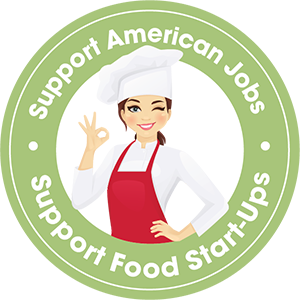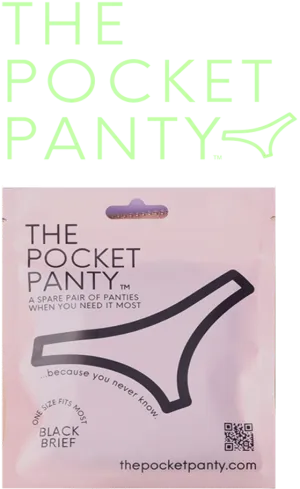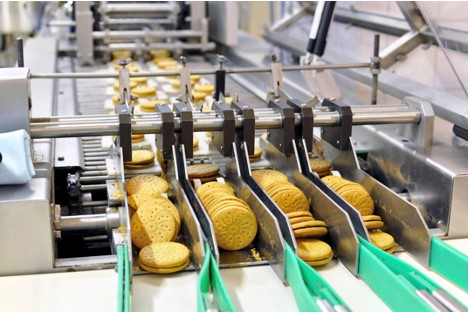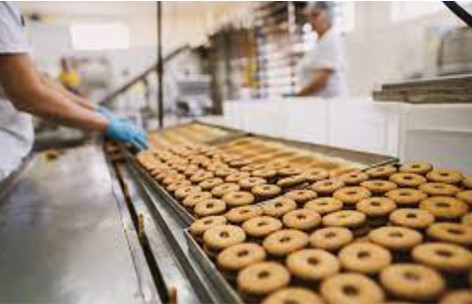

The Co-Packing Network created the Grab-and-Go Incubation Program as its own solution for start-up and emerging brands needing help and guidance with their efforts with getting their brands into grab-and-go sections.
www.GrabandGo.org



We Support CPG Start-Ups

We have been supporting the food and beverage start-up community for the past 12-years with product development, advisement, funding and placement into retail. Our internal and external start-up community is very extensive and available for start-ups nationwide.
We personally are involved with a number of start-ups at different phases all with the goal of successful launches into the North American marketplace.
Support Food Start-ups Seal: We will be using our new seal to showcase the need for the support for food start-ups in different communities, applications and programs. Our seal will be seen in our marketing efforts (TV, web, trade shows, products) and will be offered to partners who commit to the same goals.
The Contract Packaging Association is expanding it’s programming helping start-up and emerging brands. Its efforts will include other parts of consumer product manufacturing.
The phrase, Consumer Product Manufacturing relates to a- number of different areas of the business. The Packaged Goods Services Association has created four different sub-groups that are specific to their own audiences.
Each sub-group has its own website, team and focus available to help any client associated with the subject.
2.) Contract Manufacturing/Co-Packing: www.Co-Packing.org

The Pocket Panty (TPP) is the first of many products being created from the Sundry Singles (www.SundrySingles.com) Team. Ashlee Turner is the innovator of The Pocket Panty Panty. After extensive industry and consumer research, Ashlee has come up with many product extension ideas which will be added to the Sundry Singles Family.
The Pocket Panty aims to destigmatize life’s accidents and offer a quick, discreet, comfortable, and affordable solution that is easily accessible. For women and by women, TPP normalizes life’s unexpected accidents and emergencies and empowers women to view the occasional need for an on-the-go panty as a part of life and not a source of humiliation or stress.
www.ThePocketPanty.com

Core Customers by State
We list out the customers that are prime for your launch efforts (state to state). We also list the important marketing programs that each State Department of Agriculture has. We educate clients about those important targets that are local, regional and national.
Retail Formats
- Supermarkets
- Convenience Stores
- Natural Retailers
- Specialty Retailers
- E-Commerce Platforms
- Club Stores
- Mass Merchandisers
- Drug Stores and Pharmacies
- Military Retail Formats
- Candy Stores
- Office Supply Stores
- Party Stores
- Craft and Hobby
- Truck Stops
- Wine Stores
- Specialty Food Stores
- Sporting Goods Stores
- Hardware Stores
- Farm Supply Stores
- Veterans Canteens
Food Service Formats
- Vending Distributors
- Hospitals
- Colleges and Universities
- Offices and Factories (Micro Markets)
- Rehab Clinics
- VA Hospitals
- Prisons
- Active Aging Centers
- Stadiums and Arenas
- Restaurants
- Hotels and Resorts
- Airports and Airlines
- Coffee Shops
- Smoothie Shops
- Water Parks/Theme Parks
- Zoos and Aquariums
- Schools (k-12)
- Movie Theatres
- Juice Shops
- Fitness Centers
 The Co-Packing Network: From the membership of our partners, The Commercial Kitchens Association, there are numerous Commercial Kitchens (also Kitchen Incubators, Shared Kitchens, Food Innovation Centers, Commissaries , Culinary Kitchens, Food Labs and Food Incubators) to choose from.
The Co-Packing Network: From the membership of our partners, The Commercial Kitchens Association, there are numerous Commercial Kitchens (also Kitchen Incubators, Shared Kitchens, Food Innovation Centers, Commissaries , Culinary Kitchens, Food Labs and Food Incubators) to choose from.
Commercial Kitchens work with new food industry start-ups, small-scale producers, farmers market vendors, chefs, cooking classes, home-based bakers, caterers, food truck vendors, beginning farmers, photographers, or anyone needing a certified commercial kitchen.
Commercial Kitchens usually come with kitchen equipment, packaging equipment, ovens, gas or electric stoves, prep tables, convection ovens, walk-in refrigerators and/or freezers, prep sinks, a wash-room, loading docks for trucks, shipping prep areas, storage areas, fryers, flat-top grills, 20-quart mixers, dough sheeters and more.
www.CommercialKitchens.org

 The Co-Packing Network: From the guidance of our co-founder and partner, The Contract Packaging Association, we are able not only find a contract manufacturer for your needs but also help in the process, as a project manager.
The Co-Packing Network: From the guidance of our co-founder and partner, The Contract Packaging Association, we are able not only find a contract manufacturer for your needs but also help in the process, as a project manager.
Co-Packing.org: The Packaged Goods Service Association’s Co-Packing.org answers a lot of the core questions needed for start-up and emerging brands looking to create a relationship with a contract manufacturer.


 The Packaged Goods Services Association (www.PGSA.us) and the Co-Packing Network have come together to create a sub-group specific to the topic of private labeling (www.PrivateLabeling.org).
The Packaged Goods Services Association (www.PGSA.us) and the Co-Packing Network have come together to create a sub-group specific to the topic of private labeling (www.PrivateLabeling.org).We have an extensive database of private label manufacturers nationwide (in all consumer product categories) available for your needs. A-number of contract manufacturers also work with private label customers.
Private Label Sales Brokers: The Co-Packing Network can guide you also to a-number of private label sales brokers ideal to introduce your capabilities to a-number of customers nationwide.

 The Co-Packing Network and its partners are available to help create and build out a facility for a client group. It can simply be our helping source manufacturing equipment to mapping out the complete facility with everything that is needed.
The Co-Packing Network and its partners are available to help create and build out a facility for a client group. It can simply be our helping source manufacturing equipment to mapping out the complete facility with everything that is needed.
There is a high percentage of successful food start-ups that chose to have their own facility (versus going through a contract manufacturer). Taking over an existing facility (with updates) or building a facility means different pros and cons to the brand group.
a.) Existing Facility: You may want to explore looking for an existing manufacturing facility to save costs. Re-vamping an existing building can be an ideal option.
b.) Building a Facility: If there is enough funding the efforts of building a facility would be ideal. The location is very important. Most states have financial benefits (grants, loans) relating to your choice of a location. States such as Nevada, Utah and North Carolina are very generous in their programs. Another important factor is relating to the distribution of the product.

 Our team’s packaging advisors have over 30 years’ experience in technical, design, production, thin-wall plastic packaging, extrusion, molding, labelling and Heat transfer decoration. Management, sales & marketing of packaging. Local and Overseas sourcing. Passionate about packaging technology & trends, Folding Carton, Litho-Laminate and Corrugated Packaging. Point-of-Sale, Shelf-Ready Packaging. Marketing & Promotional Printing; Large Format, Digital, Offset, Flexographic and Labels. Expertise also in developing Contract Packing and Product Co-Manufacturing arrangement. Extensive Domestic and International Pack and Print Resourcing. innovation, sustainable materials along with waste management (recycling education) production performance. Knowledgeable in start up operations, importing and shipping, warehousing & transport, Quality, FMCG and HACCP. When it comes to choosing the right packaging material for your product, you can’t go wrong by paying close attention to the details. After all, packaging may just be one of the biggest factors in making your product a success.
Our team’s packaging advisors have over 30 years’ experience in technical, design, production, thin-wall plastic packaging, extrusion, molding, labelling and Heat transfer decoration. Management, sales & marketing of packaging. Local and Overseas sourcing. Passionate about packaging technology & trends, Folding Carton, Litho-Laminate and Corrugated Packaging. Point-of-Sale, Shelf-Ready Packaging. Marketing & Promotional Printing; Large Format, Digital, Offset, Flexographic and Labels. Expertise also in developing Contract Packing and Product Co-Manufacturing arrangement. Extensive Domestic and International Pack and Print Resourcing. innovation, sustainable materials along with waste management (recycling education) production performance. Knowledgeable in start up operations, importing and shipping, warehousing & transport, Quality, FMCG and HACCP. When it comes to choosing the right packaging material for your product, you can’t go wrong by paying close attention to the details. After all, packaging may just be one of the biggest factors in making your product a success.
The right packaging not only attracts consumers, it will keep your product safe in transportation and keep it fresh. This reinforces the quality of the brand and item when customers know they can count on a fresh item from when it hits the shelf to when it’s in their hand.
Source: www.industrialpackaging.com
Packaging has grown in importance in recent years and innovative packaging is a valuable selling point in the market. Packaging ensures that offerings conform to market trends by communicating unique selling points and offering freshness and convenience. By being lightweight, packaging can reduce the carbon footprint of transportation. Consumers expect that packaging will be recyclable. International studies found that a majority of consumers think food and drink products are over-packaged and a number of them would consider boycotting a product if it didn’t meet their environmental criteria.

A client maybe to use the ingredient suppliers of their selected co-packer or commercial kitchen to save time and money. In most cases the client ends up finding sources for some of the ingredients (which maybe unusual or not used by their manufacturing partner). There are a number of sources for ingredients in general, mostly being either direct manufacturers or from distributors.
From The Experts: Will the brand take care of ingredient sourcing or let the contract manufacturer take care of it? Key points to consider before making the decision: traceability, quality assurance, regulatory awareness, financial consideration, availability of specialty ingredients.
Notation: Ingredient suppliers will usually give free samples to the manufacturing partner for a client’s needs to use in test runs.
Ingredient sourcing is one of the most important things to consider when questioning a co-packer. If your raw ingredients are top quality and the co-packer will do the sourcing, you must ensure they will match the integrity profile of your brand. It may take a while to find balance between the quality and cost of your product. Coming up with, or refining, your recipe to meet scale may include a lot of back and forth, including some compromise on your part. However, if you choose a co-packer that already makes the type of product you produce, they should have a list of sources and vendors readily available for you to select the ingredients you prefer.
“The co-packer usually has better buying power, which can be beneficial to the developer of the product, both in price and consistency of ingredients,” Denis notes. The exception: If you have a niche product and need a specific ingredient that the co-packer doesn’t want to source or carry, “then it is worth sourcing it out yourself,” he adds.
Before you start, run a test batch with the new ingredients so you can get feedback from customers and family, and then tweak the recipe if needed. Test for taste, shelf stability, and nutritional profile.
Source: Specialty Food Association
The Co-Packing Network handles ingredient sourcing for most of its clients (either for direct manufacturing or going through a co-packer). We are partners with a-number of regional and national ingredient suppliers.



Founded by the Contract Packaging Association and its partners, the Packaged Goods Services Association was created as an expansion of the CPA’s RFQ Tool. The RFQ Tool helps start-up and emerging brands with their co-packing needs. The RFQ Tool is being expanded to include efforts with commercial kitchens, private label companies, CPG companies with their own facilities and related partners.
www.PGSA.us

Founded by the Contract Packaging Association and its partners, the Contract Manufacturing Alliance recruits and works with other consumer product industry trade associations (and related groups). Our combined efforts help start-up and emerging consumer product companies with its internal incubation and mentoring programs. Together, we help start-up, emerging and established brand groups with their manufacturing needs.
www.ContractMFG.org

Founded by the Contract Packaging Association and its partners (through the Contract Manufacturing Alliance and PGSA efforts), the Co-Packing Network created the Co-Packing Network as its internal incubation and mentoring programs. Together (with our co-founding trade association partners), we help start-up and emerging brand groups with their manufacturing needs (commercial kitchens, co-packers, companies with their own facilities).
www.Co-Packing.net

